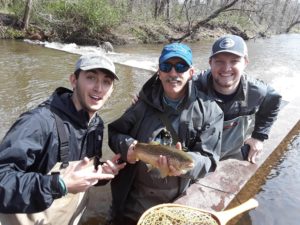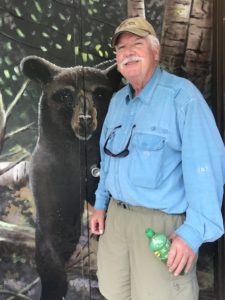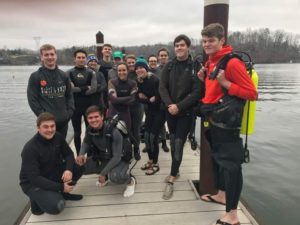For nearly half a century, a partnership between two Clemson University departments has provided courses for credit in leisure education and research opportunities to students on campus.
The partnership began when the university started its leisure skills program in 1972, which allows Clemson students to take a leisure or recreational course for one credit, while also helping them explore non-academic hobbies or career options. The program typically offers more than 150 one-credit learning options every semester in subjects such as dance, shotgun and other sports, yoga, fitness, outdoor recreation and first aid. The courses are developed and managed by the university’s parks, recreation and tourism management department, with 24 of the 159 courses offered last fall using campus recreation facilities.
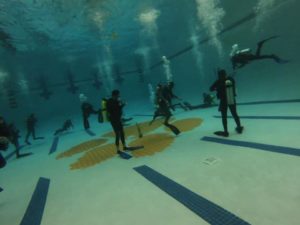
Jeff Hallo, interim chair of the department, says that the leisure skills partnership between university departments is an example of working together in the best interests of students, while also furthering new research befitting Clemson’s status as one of the nation’s most active research institutions (Carnegie Basic Classification R1 – Highest Research Activity).
“We’re grateful to campus recreation, and are particularly thankful for Executive Director David Frock, for ensuring Clemson students can participate in learning opportunities in their campus facilities,” Hallo said. “It’s safe to say that these programs, which have provided numerous opportunities for our faculty and graduate students to conduct leisure-focused research while also serving thousands of undergraduate students, make a significant contribution to our university as a whole.”
Leisure Skills Program Director Dan Anderson adds that the program functions as a research lab of its own on campus.
“We have the most prized population to study in the leisure field – college-aged students – right at our fingertips, and we have them actively engaged in active forms of leisure, like sports, and non-active forms of leisure, giving us a unique research opportunity,” Anderson said. “We’ve had several graduate students and faculty members study the impacts associated with student participation in those types of programs, such as on their mental health, their ability to better focus on their studies and on their body image.”
A study led by former Clemson graduate student Katherine Ann Jordan that was published in the Journal of Experiential Education in 2018, for example, found that if college students have leisure education included in their academic schedule and tied to their grade point average, they were more likely to actively participate in healthy leisure activities and begin and maintain positive lifestyle habits.
Another study led by former doctoral student Cindy Hartman and published in the Journal of Student Affairs Research and Practice in 2017 found that leisure education courses are a form of complementary health programming that helps students build adaptive coping skills and positive well-being. In 2013, graduate student Kate Evans used the leisure skills program to explore the impact leisure skills classes have on building student engagement with the university. The study results indicated that leisure education had a marked impact – providing a uniquely positioned environment for building students’ sense of engagement with their institution through an enhanced sense of community, enhanced sense of self and active learning.
Campus Recreation Executive Director Dr. David Frock said that the partnership between the departments aligns with the campus recreation mission to enhance the educational experience and promote lifelong wellness through high quality and diverse recreation programs, services and facilities.
“Hosting courses within the leisure skills program activates and engages students, exposing them to the numerous well-being services offered through campus recreation,” Frock said. “Our staff has collaborated with faculty on research and grants along with collaborations on programs and events throughout PRTM. Campus recreation staff also instruct courses and provide Clemson students the opportunity to develop new skill sets and build their resumes.”
Over the past few years, the partnership has expanded to include research, grants and other campus activities with a focus on diversity. For example, the departments recently worked together to introduce wheelchair basketball as the newest intramural sport.
These activities are part of the university’s Adaptive Sports and Recreation Lab, which was launched last spring in order to further existing efforts to implement high-quality adaptive sport programming and conduct applied research.
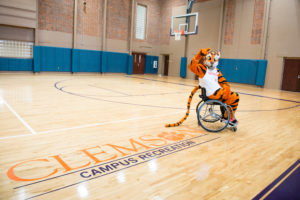
Other opportunities for adaptive sport involvement by students and community members include the Southeast Regional Wheelchair Games and the Clemson Classic juniors wheelchair basketball tournament. All of these programs require campus resources to be successful, of which campus recreation facilities and staff are vital.
These joint efforts demonstrate a commitment to achieve the university’s strategic aims of inclusive excellence and to break down the barriers to sport and recreation access that many students with physical disabilities experience on college campuses.
Hallo said he is hopeful that the partnership can continue to provide opportunities for students and faculty well after it surpasses its 50th anniversary in 2022.
“This partnership has accomplished a great deal over the decades and helped thousands of students,” Hallo said. “We’re aware that many of these programs wouldn’t exist without access to campus recreation facilities and equipment, and we’re thankful for the opportunity to continue to work with them to create new opportunities for our students and community.”
